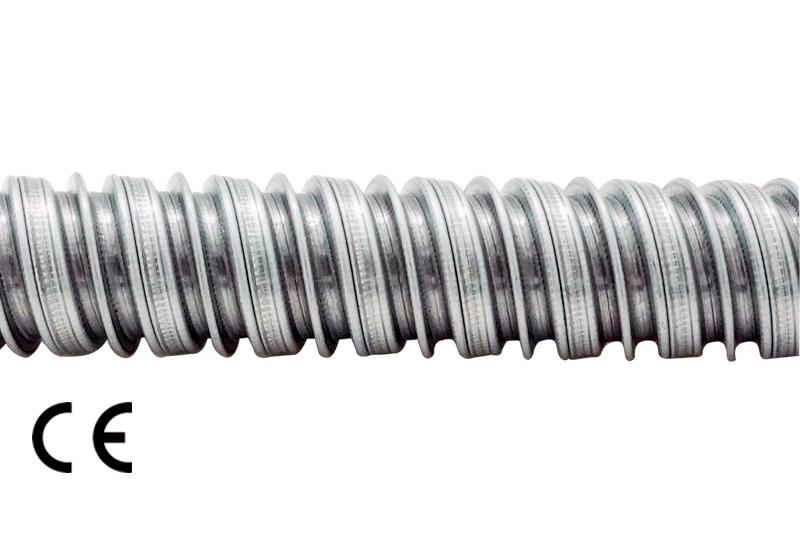Fire safety is paramount in any building, and the choice of materials for electrical installations plays a crucial role in preventing and mitigating fire risks. Flexible metal conduit is a popular choice due to its versatility and durability, but understanding the fire safety considerations associated with its use is essential for ensuring maximum safety. This article delves into the key factors to consider when using flexible metal conduit in your electrical installations.

Flexible metal conduit, often referred to as FMC or flex conduit, is a flexible metallic wiring solution used in electrical installations. It consists of a helically wound metal strip with interlocking construction, providing flexibility while offering protection to electrical wires. FMC is commonly used in areas where traditional rigid conduit is impractical or too costly, such as in tight spaces or where vibration resistance is needed.
Fire Resistance Ratings of Flexible Metal Conduit
One crucial consideration when using flexible metal conduit is its fire resistance rating. While FMC itself may not be inherently fireproof, certain types come with coatings or sheathings that enhance their fire resistance properties. When selecting FMC for your installation, it's essential to choose products with appropriate fire ratings to ensure compliance with building codes and regulations.
Installation Guidelines for Fire Safety
Proper installation is key to ensuring the fire safety of flexible metallic conduit fittings. Installers should follow manufacturer guidelines and local building codes meticulously to minimize fire risks. This includes proper support and securing of the conduit, adequate clearance from heat sources, and correct sealing of penetrations to prevent the spread of fire.
Maintenance and Inspection Procedures
Regular maintenance and inspection of flexible metal conduit installations are essential for identifying potential fire hazards and ensuring continued safety. Inspectors should look for signs of wear, damage, or corrosion, which could compromise the conduit's fire resistance or structural integrity. Any issues should be addressed promptly to mitigate risks.
Fire Safety Considerations with Flexible Metal Conduit
When designing electrical systems that incorporate Water Proof Flexible Metal Conduit, several fire safety considerations must be taken into account. These include:
1. Proper Sizing and Installation
Ensure that the FMC is appropriately sized for the application and installed according to manufacturer specifications to prevent overheating or overloading.
2. Compatibility with Surrounding Materials
Consider the compatibility of FMC with other materials used in the building, such as insulation or structural components, to minimize fire risks associated with chemical reactions or thermal effects.
3. Firestopping Measures
Implement firestopping measures where FMC penetrates fire-rated assemblies to maintain the integrity of fire barriers and prevent the spread of flames and smoke.
4. Electrical Circuit Protection
Install appropriate circuit protection devices, such as circuit breakers or fuses, to prevent electrical faults from igniting fires within the conduit system.
5. Emergency Response Planning
Develop and implement emergency response plans that outline procedures for evacuating occupants and responding to electrical fires involving flexible metal conduit.
Conclusion
Fire safety considerations are paramount when incorporating flexible metal conduit into electrical installations. By adhering to proper installation practices, conducting regular maintenance, and understanding the specific fire risks associated with FMC, property owners and installers can mitigate potential hazards and ensure the safety of occupants.
评论
发表评论